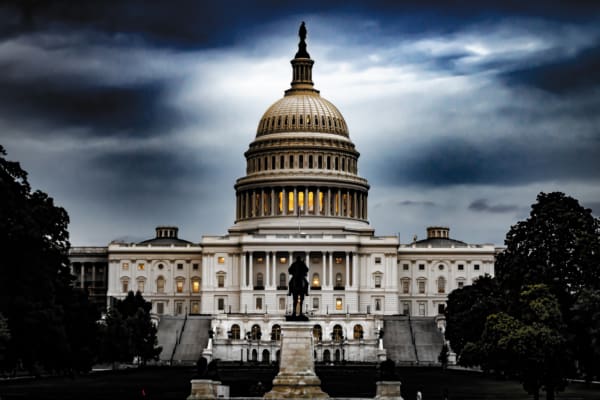
The Balanced Budget Amendment introduced by House Republicans went down to defeat Thursday night by a vote of 233-184, falling fall short of the 2/3 majority required to advance the measure to the Senate. The amendment’s demise was a relief for our nation’s seniors, because it threatened the earned benefits they have contributed to during their entire working lives. Seniors and their advocates can rightly take credit for the Balanced Budget Amendment’s defeat. The National Committee sent a letter to Congress on April 10th urging members to reject this ill-considered, dangerous change to our nation’s Constitution.
National Committee president and CEO Max Richtman issued the following statement in response to last night’s vote
“Social Security and Medicare were spared a terrible fate when House leadership was unable to pressure 2/3 of their colleagues to vote for a Balanced Budget Amendment (BBA) to the U.S. Constitution. The BBA would have prevented Social Security and Medicare Part A from using trust fund reserves to pay benefits for millions of Americans – including retirement, disability, and hospitalization. The House members who voted against the BBA did the right thing today.” – Max Richtman, president and CEO of the National Committee to Preserve Social Security and Medicare.
A balanced budget amendment would have blocked benefit payments from the Social Security and Medicare Part A trust funds since all federal expenditures, including these earned benefits, would have to be covered by revenue collected in the same year. It also would have required draconian spending cuts, inviting Congress to slash Medicare Parts B, C and D, Medicaid, and many other social safety net programs for seniors, while opening the door to massive new tax cuts.
While the balanced budget amendment did not dictate any particular approach to deficit reduction, by altering established Congressional voting procedures it would have increased the likelihood that the fiscal policies adopted in coming decades would favor the well-off at the expense of middle- and low-income Americans. The amendment would have require a two-thirds vote of the full membership of the House and Senate to raise taxes. Spending cuts, by contrast, would continue to require only a majority of those present and voting and could be passed on a voice vote.
Adding to these problems, the amendment would have heightened the risk of a federal government default by requiring a three-fifths vote of both the House and the Senate to raise the debt limit, rather than the current simple majority. Consider the scenario where budgets thought to be balanced at the start of a fiscal year fall out of balance during the year as a result of factors such as slower-than-expected economic growth or a natural disaster. If sizable deficits emerged with only part of the year remaining, Congress and the President may have been unable to agree on a package of budget cuts resulting in Congress being unable to raise the debt limit and allow a deficit. The President may have been bound, at the point at which the “government runs out of money,” to stop issuing checks.
The political right has hauled out spurious arguments to push a balanced budget amendment for years. (The last time the GOP tried to pass one was 2011). Among these canards: States balance their budgets, they say. Why can’t the federal government? Families balance their budgets? Why not Congress? We debunked these arguments in a recent article in this space:
While it’s true that some states have balanced budget amendments, many of those apply only to operating budgets, not capital expenditures for long-term projects. Regardless, states do not have the sweeping responsibilities of the federal government, including national defense, federal disaster response, and Social Security or Medicare. As for families, many do strive to balance their household budgets, but still carry mortgages on their homes, auto loans, and sometimes, lines of credit. In other words, like the federal government, states and families are leveraged to meet their vital needs. – Entitled to Know, 3/30/18
The National Committee supports responsible government budgeting. However, we oppose a balanced budget amendment to the U.S. Constitution because it would significantly harm the economy, result in a government default and force severe cuts in Social Security, Medicare, Medicaid and other vital federal programs.


